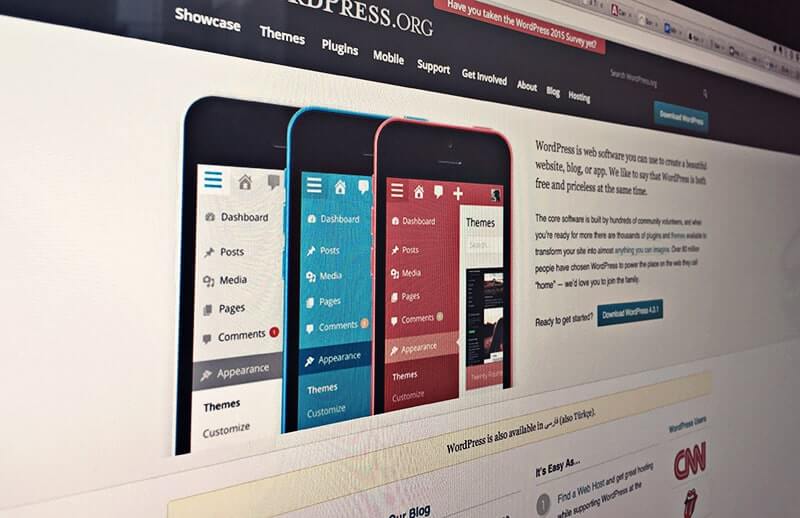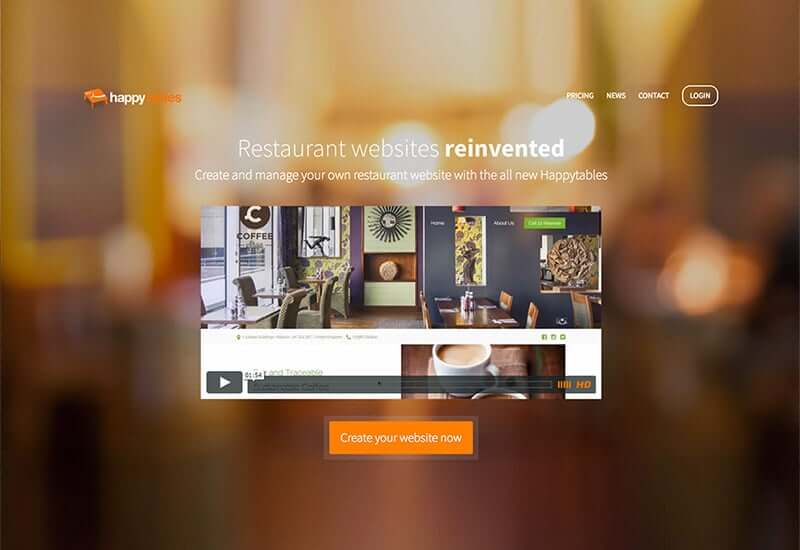I was recently busy thinking about the debate around Sergio Nouvel’s controversial post,
“Web Design Is Dead” on Mashable and the web design zealots’ backlash against it, the most important of which is from Smashing Magazine’s Vitaly Friedman. I really don’t find a reason to take a side in the growing debate around this topic, as I find this kind of debate useful and constructive for none other than the end user.
But there is one important question that has kept me engaged pretty steadily recently: What is the future of WordPress in this battle? WordPress is the industry with which I have been primarily active for the last five years and is a vital part of my life and business. The same is true for millions of other users and businesses who shape a large 22% of the entire World Wide Web which is powered by WordPress.
The answer to that question will also answer the question of how it will change in the future to fit the status quo.
- Will it die?
- If there’s a shift, will I be ready for it?
- What needs to be done in order to successfully grasp the imminent changes?
- What does it mean to fail to adapt to the changes?
- Where do other website builders’ solutions stand in the competition to survive?
The findings I will list in this post will not make you happy and they may even disappoint you, but at the end of the day they will benefit you and your business.
Commercial WordPress Themes Will Evolve Into an All-In-One Service
[abb_padding_divider height=”30″]

WordPress is widely known for its piecemeal structure. This makes using it, on one level, very easy, extendable and customizable. But on another level it also demands extra attention to each step in order to have a fully fledged WordPress website. if you are an expert user who needs to fully improve the website in terms of speed, performance and maybe SEO, there are services like Artbees Care, Envato Studio, Codeable.io who help optimise your WordPress website. But in the near future, WordPress themes will be offered as part of an all-in-one service. Right at point of purchase, you will receive everything needed to run that software in an optimized way. For any problems you have while using the product you will receive high quality support, and will possibly be able to pay extra for prioritized support.
SaaS Services Will Eat into WordPress in Niche Markets
[abb_padding_divider height=”30″]

The rise of SaaS services will evolve into dominance of niche markets in the near future. These services are covering the non-technical users’ needs with simple all-in-one solutions. Services like Squarespace have already occupied a large section of personal blogs, wedding websites, and local business websites, and will continue to thrive in similar niche markets where not much customizability is required.
This is exactly where they will win over WordPress; they can perfectly cover the needs of this part of the market in a way that no small single-purpose WordPress theme is able. But they don’t satisfy the more technical user’s needs (designers or developers) for more customization. Services like Wix do, however, offer more room for customization comparing to the likes of Squarespace, but the customization level and the user experience still have a lot of room to improve.
Non-Customizable Will Fade, Customizable Will Rule
[abb_padding_divider height=”30″]

In order to survive the new-age storm, WordPress has only one winning card and that’s what niche market website builders have not: Customizability. The current arsenal of niche site builders like Squarespace, Exposure, Storyform and others do not give you many options to customise your website the way you’d like.
This is most important for businesses as many of them want to look unique, and not like their rivals’ websites. Services like Wix and Weebly have already occupied this part of the market to fulfill the need for more customization; however, the Wix drag-and-drop content builder isn’t the best you can expect in 2015, and Weebly should be considered more of a webhost service with just the added feature of a drag-and-drop page builder.
Creation Will Happen on the Frontend
[abb_padding_divider height=”30″]

The race between site builders to enrich the frontend as much as possible has already started. Wix makes a lot of the creation process possible via drag-and-drop from the frontend. The modern blogging platform Medium pushed it even further by increasing the WYSIWYG capability and live commenting and tweeting. Webydo is more design-oriented so it offers more pixel-perfect design capacity, and is therefore more popular among designers. Webflow has got the best of both worlds.
[abb_padding_divider height=”10″]

It sports a rich set of design elements for designers as well as a solid range of customization features to help professional developers. It generates a very well-crafted semantic code that accompanies your great design towards an ideal website. And what makes Webflow stand out from the the competition is that it enables you to host your site either through them or on your own. Webflow was once a static website builder but it’s now developed into a fully-fledged CMS and can be considered a service which has already started moving towards the future we depict here.
WordPress Will Mean Javascript and APIs
To catch up with this brutal race towards the highest frontend capability, WordPress needs to make major overhauls to its core soon. The third-party plugin developers have already taken some steps. WPBakery has already added frontend capabilities to its popular content creation plugin Visual Composer, however it’s still not on par with existing frontend builders in the website development space. To best accomplish this goal, WordPress will need to tend more to its frontend pole. Most of the actions you take in the backend right now will need to migrate to the frontend in the future.
Modern Javascript frameworks like NodeJS, Angular, React, Backbone and Ember will facilitate this powerful frontend and will communicate to the backend via APIs. In the future with further development of REST API in WordPress core, WordPress will not mean anything more than the backend in which managerial needs are managed. Everything else is managed with Javascript and APIs. As Tom Ewer from WPMudev puts it, “Integration of the JSON REST API will mark the final transformation of WordPress from its humble roots as a blogging solution into a fully-featured application platform.”
Different applications—take your WordPress website building startup service as an example—will easily access any kind of information they need from WordPress in a readily made interface without messing with the backend. And guess what? You won’t need to know a line of PHP to start talking to WordPress anymore. You will have developed a plugin or application with Python or Ruby and you’ll be able to integrate it with WordPress thanks to that interface, and boy that’s precisely awesome! (See also this interesting article from WordPress REST API lead developer, Ryan McCue, where he predicts REST API dominance in 2020.)
Closed Is Dead, Long Live the Extendible
WordPress is basically known and praised for its multifold structure. There are plugins created by a vibrant community that enable you to add different features and functionality to your theme or website. From a community forum, to a ticketing help desk system, to an online store, and so forth. This—comparing to other CMSs—powers its users with more flexibility in development and creation. The emergence of vast API integrations and their vast usage in the future of site builders will align well with the essence of WordPress.
Even though WordPress plugins have been mostly serving backend features and functionalities, in the next era plugins will not only serve as additions, but instead as an integral part of your creation process in the frontend. You will not need to switch to WordPress backend to manage and actually use the plugin. WordPress developers will be able to write plugins with the same PHP or with almost any other language that can function in the frontend. This will facilitate the writing of more complex frontend editors and managers.
At the same time you will have richer and better integrations with existing plugins, all frontend. You will be able to create, manage, and sort products to sell, manage your support tickets, and so forth, all from the frontend. The high extendibility potential and the army of loyal community developers will continue to be WordPress’s winning cards against the rivals. Just imagine how tempting and lucrative it will be for programmers in other languages to develop apps and plugins for WordPress!
What This All Means to You
WordPress as we know it so far, will fade out unless it adopts new-age paradigms. In the WordPress theme market playground, small WordPress themes will start to disappear in light of great niche-based services that deliver the best for their target with an affordable price. Multi-purpose themes will continue to thrive if they can succeed to adapt to these new principles. Theme subscription services will start to replace small themes with their big themes, and will invest more features and capabilities with the modern approach.
Free themes will die but different services will compete to attract their users with tempting free tiers. Theme marketplaces will need to tweak, if not totally revamp, their business model in order to survive. By introducing services like Envato Studio and paid author supports, Themeforest has already started to evolve into more of a service than a mere one-off purchase theme store. WooThemes co-founder Mark Forrester said in an interview that 80% of the company’s revenue is not even from its themes but from its evolving plugin extension that people need to buy upon their business progress.
Future of WordPress will be less of a theme market and more of a website building service with possibly no mention of WordPress to the naked eye before conversion. Services like HappyTables and Pickle are good examples. The aforementioned new paradigms will promise a more user-driven and content-centric future for the web. This modern system for WordPress will not only benefit you as an end user but will also benefit developers, designers, bloggers, and publishers.
[abb_padding_divider height=”10″]

All these changes will contribute to an easier and more efficient content creation process. The WordPress shift from being backend-oriented to frontend-oriented will help for more and better customization for those who need flexibility. Publishers and bloggers will be happier to write in a WYSIWYG environment, and brands will have an easier way to apply their style to their websites. The bottom line is that the future of WordPress will be shining and dominating the part of the market that has not yet been claimed by any website builder solutions.




10 Comments
Wondering when WordPress will include WP-API into its core so developers could potentially start taking advantage of its off-technology benefits.
After Automatic acquiring WooCommerce seems they are also leading to a path to build a stronger and streamlined product.
That’s already happening right now 🙂
https://wordpress.org/news/2015/10/wordpress-4-4-beta-1/
That’s happening right now 🙂
https://wordpress.org/news/2015/10/wordpress-4-4-beta-1/
Well they are saying this for every update that they will integrate, this time it seems at least they have started as phase 1.
Thanks for the info Nikola 🙂
Um, are you sure Webflow is built on WordPress?
Hey Troy. I guess i have the wrong info from a wrong source I do not want to name here. I will fix these thanks to your very nice catch 😉
I think it has always been the case, and always will be the case, that there are those who will try to do it themselves (even if it takes them 3 or more weeks to realise it wasn’t as easy as it first looked) and there will always be those who prefer to concentrate on their core business and leave the design and development of their website to someone who understands more about… er… the design and development of websites. 🙂
With themes creating a very same-ish world on the internet these days (particuarly among DIYers) a few design tweaks can make all the difference to whether a visitor stays on a site or goes within the first 10 seconds. But I’m sure we all know that. So I don’t regard anything that’s been suggested in the article above as doom and gloom or the end of an era per se, I regard it more as a Darwinian process, where savvy designers and developers will always find value added services to… er… add value to a customer’s website.
There’s more to design than just plonking some images and copy in a page builder and getting one’s head around some of the more advanced page builders (and themes) these days, is often a challenge too far for those who don’t do this stuff as a day job. Well, day and night job, but I’m sure we all know that too. 🙂
You’re right James, I think what this article suggests is that the end of WordPress (as we know) is inevitable unless it embraces these changes. and of course it will happen through a very transitional evolution not all of a sudden. WordPress can be a perfect solution for those who need customisation but I personally think the number of people who will go to a designer or agency for a customised website will shrink down dramatically in the coming years and this is where WordPress will need to turn into more of a service than a theme to install.
Hey Max… Awesome Article on how things are evolving in the world of web development… I’m a UI developer and thus primarily have been working with Javascript… I paid more attention to your “WordPress Will Mean Javascript and APIs” section and I’m very excited if WordPress is considering going the Javascript way… I have tried my hand with Custom WordPress Theme Development and I love everything about it except for the PHP part… So from what you say in that section, I understand that WordPress Themes will move away from PHP to Javascript and related stack like MEAN/Meteor.js and you can write plugins with Python? This would be a sweet dream come true and I would love to start selling themes built with only javascript… Any more tips for a guy like me who wants to start developing premium themes and custom plugins and sell on a market place like Envato?
Hey Prajwal, Glad you liked the article! That’s pretty much what every Javascript developer is waiting on and so do we 🙂 What I think is PHP involvement will diminish dramatically and you can develop for WordPress with many languages and of course you can put them for sale on Envato or your own store then.